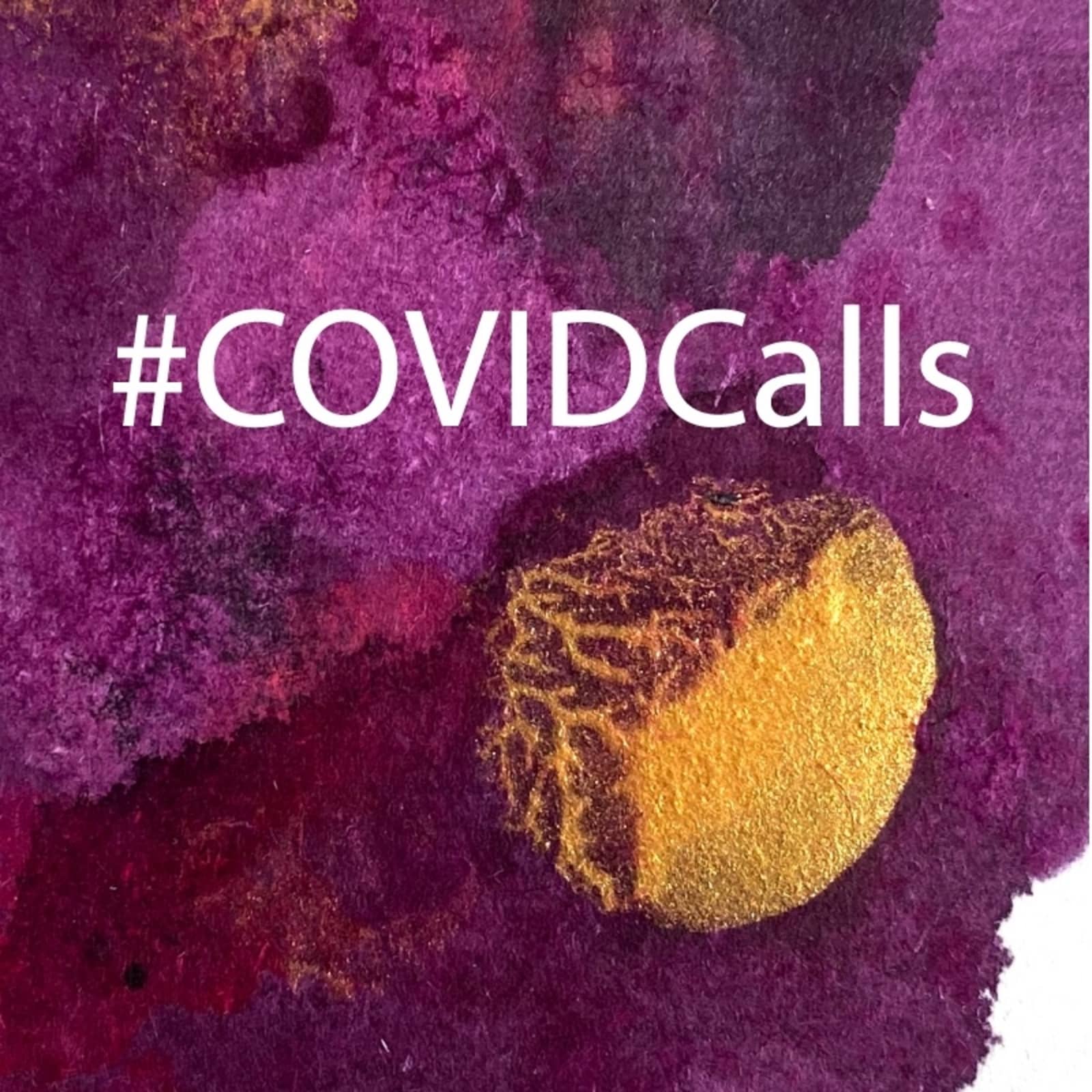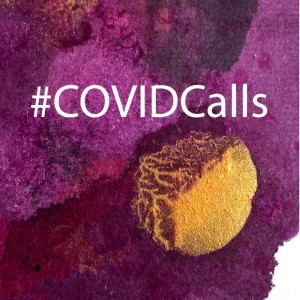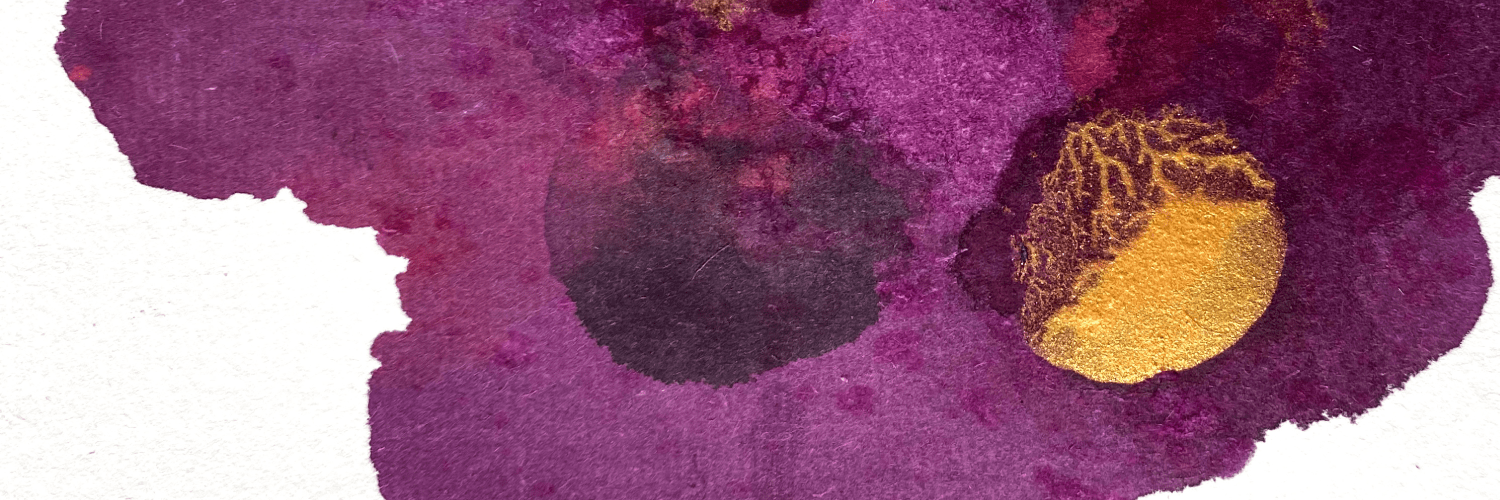
56K
Downloads
504
Episodes
A daily discussion of the COVID-19 pandemic with a diverse collection of disaster experts - hosted by Dr. Scott Gabriel Knowles, a historian of disasters at KAIST in Daejeon, South Korea.
A daily discussion of the COVID-19 pandemic with a diverse collection of disaster experts - hosted by Dr. Scott Gabriel Knowles, a historian of disasters at KAIST in Daejeon, South Korea.
Episodes

Wednesday Aug 18, 2021
EP #324 - 08.18.2021 - Poetry in the Pandemic w/Nisha Patel
Wednesday Aug 18, 2021
Wednesday Aug 18, 2021
Today I talk to Nisha Patel, Edmonton, Canada’s poet laureate.
Nisha Patel is an award-winning queer and disabled artist. She was the City of Edmonton’s 8th Poet Laureate, and the 2019 Canadian Individual Slam Champion. She is a recipient of the Edmonton Artists’ Trust Fund Award and the University of Alberta Alumni Award of Excellence. Her debut collection COCONUT is available now at Glass Bookshop. You can find her at nishapatel.ca.

Wednesday Aug 18, 2021
EP #323 - 08.17.2021 - Public Health Update w/Esther Chernak
Wednesday Aug 18, 2021
Wednesday Aug 18, 2021
Today I get a COVID and public health update with longtime friend of COVIDCalls, Esther Chernak.
Dr. Esther Chernak. Esther is a professor in the Department of Environmental Health, Drexel University School of Public Health, and has a position in the Drexel University College of Medicine. She is the director of the Center for Public Health Readiness and Communication at Drexel. Prior to joining the Drexel faculty in 2010, Dr. Chernak worked at the Philadelphia Department of Public Health for over 25 years. She is a regular contributor to COVIDCalls.

Wednesday Aug 18, 2021
EP #322 - 08.17.2021 - Conspiracies and COVID
Wednesday Aug 18, 2021
Wednesday Aug 18, 2021
Today I discuss the dangerous world of COVID conspiracies with my guest Anna Muldoon of the School for the Future of Innovation and Society at ASU.
Anna Muldoon is a co-author of COVID-19 Conspiracy Theories and currently focuses on conspiracy, misinformation, and apocalypticism around infectious disease outbreaks. She is a former Science Policy Advisor in the Office of the Assistant Secretary for Preparedness and Response (ASPR) at the Department of Health and Human Services. While at ASPR, she focused on international public health systems, laboratory biosafety and biosecurity, science communication, and policy development for regulating genetically altered biological organisms. She has published peer-reviewed articles on biodefense history, U.S. implementation of nonproliferation treaties, and infectious disease surveillance systems. She holds a Masters in Public Health degree from George Washington University and is currently a Ph.D. student in the School for the Future of Innovation and Society at ASU.

Tuesday Aug 17, 2021
EP #321 - 08.16.2021 - The Medical Ethics Surronding COVID-19 w/Art Caplan
Tuesday Aug 17, 2021
Tuesday Aug 17, 2021
I’m glad to return to the COVIDCalls microphone after a much-needed break. It was one that, quite honestly, I really needed—but it’s nothing compared to the break that nurses and docs and teachers and other essential workers across the USA and around the world need. The stories coming from full emergency departments and overcrowded, unvaccinated, classrooms in the United States are so distressing—I wish everyone could find some time and some peace in the midst of all this.
I want to offer my sincere gratitude to guest hosts Kim Fortun, James Adams, and Jacob Steere-Williams for producing and hosting some lively and insightful COVIDCalls discussions while I was away. And, as always, nothing is possible without COVIDCalls superteam members Bucky Stanton and Shivani Patel. Thank you all.
Today I discuss the many ethical dilemmas of COVID with my guest, bioethicist Arthur Caplan.
Arthur Caplan is the Drs. William F and Virginia Connolly Mitty Professor and founding head of the Division of Medical Ethics at NYU School of Medicine in New York City.
Dr. Caplan is the author or editor of thirty-five books and over 725 papers in peer reviewed journals. His most recent books are The Ethics of Sport, (Oxford University Press, 2016 with Brendan Parent) and Vaccination Ethics and Policy, (MIT Press, 2017 with Jason Schwartz).
He has served on a number of national and international committees including as the chair of the National Cancer Institute Biobanking Ethics Working Group, chair of the Advisory Committee to the United Nations on Human Cloning; chair of the Advisory Committee to the Department of Health and Human Services on Blood Safety and Availability. He has also served on the Presidential Advisory Committee on Gulf War Illnesses, and the special advisory committee to the International Olympic Committee on genetics and gene therapy.
Dr. Caplan is a regular commentator on bioethics and health care issues for WebMD/Medscape, for WGBH radio in Boston and WMNF public radio in Tampa.
Dr. Caplan is the recipient of many awards and honors including the McGovern Medal of the American Medical Writers Association and the Franklin Award from the City of Philadelphia. He was a USA Today 2001 “Person of the Year and was described as one of the ten most influential people in science by Discover magazine in 2008. And this only scratches the surface of his work!

Thursday Aug 12, 2021
Thursday Aug 12, 2021
Welcome to the 320th episode of COVID-Calls, a daily discussion of the COVID-19 pandemic with a diverse collection of disaster experts. My name is Jacob Steere-Williams, I am a historian of public health at the College of Charleston, in Charleston, South Carolina. This week I will be the guest host of COVID-Calls while the program’s founder, Scott Knowles, takes a much-needed recharge.
Dr. Lakshmi Krishnan is a physician, medical humanities scholar, and cultural historian of medicine at Georgetown, where she is the Founding Faculty Director of the Medical Humanities Initiative. Her current research and forthcoming book, The Doctor and the Detective: A Cultural History of Diagnosis, contracted for publication with Johns Hopkins University Press, focuses on the histories of diagnosis and clinical reasoning, with broader relevance for physician professional identity formation, medical epistemology, and diagnostic bias and health equity. Lakshmi sent me the humble biography, so let me fawn on her work a little here. Not only was she a Rhodes Scholar at Oxford University, where he got a DPhil in 19th century English literature, she then got an MD at Johns Hopkins and interned at Duke. Her work has appeared in The Lancet, Annals of Inernal Medicine, Literature and Medicine, Modern Languages Review, Victorian Literature and Culture, and Victorian Poetry.
My second guest is Dr. Lorenzo Servitje. He is an Associate Professor of Literature and Medicine at Lehigh University. He holds a dual appointment in the English Department and Health, Medicine, and Society Program. Lorenzo is the author of the newly published, and incredibly exciting book Medicine is War: The Martial Metaphor in Victorian-Literature and Culture, published this year by SUNY press. His work has appeared in the Journal of Medical Humanities, Critical Survey, Science Fiction Studies, Literature and Medicine, and Games and Culture. Lorenzo also serves on the editorial board of the Journal of Medical Humanities.

Wednesday Aug 11, 2021
Wednesday Aug 11, 2021
Welcome to the 319th episode of COVID-Calls, a daily discussion of the COVID-19 pandemic with a diverse collection of disaster experts. My name is Jacob Steere-Williams, I am a historian of public health at the College of Charleston, in Charleston, South Carolina. This week I will be the guest host of COVID-Calls while the program’s founder, Scott Knowles, takes a much-needed recharge.
Dr Mandisa Mbali joined the Department of Historical Studies in 2017 from Stellenbosch University, where she taught Social Anthropology. She obtained her doctoral degree in Modern History at Oxford University. Her main research interest is in health policy and activism, considered historically, as interrelated phenomena, both transnationally and within South Africa. Dr Mbali has explored this theme in book chapters and journal articles on AIDS activism and policies, health, gender and sexuality and the politics of race and ethics in international health. In 2013 she published her scholarly monograph South African AIDS Activism and Global Health Politics with Palgrave Macmillan as part of their Global Ethics series: this monograph was completed during postdoctoral fellowships at Yale University and the University of KwaZulu-Natal. More recently, her work has analysed transnational debates over apartheid and medical humanitarianism in late twentieth century South Africa. She is also working towards developing a comparative historical approach to examining the global health politics of AIDS and COVID-19.
Dr. Dora Vargha is Professor of History and Medical Humanities at the University of Exeter in the UK. Dora’s expertise is on the history of epidemics, the politics of health, and Cold War history. Dr. Vargha’s interests span from the politics of epidemic management to public health systems and access to therapeutics. Her book, Polio Across the Iron Curtain: Hungary's Cold War with an Epidemic was published open access in 2018 with Cambridge University Press. She has also written on the global infrastructure of diphtheria antitoxin, the politics of vaccination in Eastern Europe, hospital care of disabled children in communist cotexts, and about shifting epidemic narratives in historical analysis. Dr. Vargha is currently working on a couple of different research projects, After the End of Disease, which pushes back on conventional narratives of epidemic bell-curves, and a second project, Socialist Medicine: An Alternative Global health History. Dora is also co-editor of the journal Social History of Medicine.

Tuesday Aug 10, 2021
Tuesday Aug 10, 2021
Welcome to the 318th episode of COVID-Calls, a daily discussion of the COVID-19 pandemic with a diverse collection of disaster experts. My name is Jacob Steere-Williams, I am a historian of public health at the College of Charleston, in Charleston, South Carolina. This week I will be the guest host of COVID-Calls while the program’s founder and host, Scott Knowles, takes a much-needed recharge.
Dr. Jim Downs is the Gilder Lehrman NEH Chair of Civil War Era Studies and History at Gettysburg College. He is the author of two widely-acclaimed books, Sick From Freedom: African American Sickness and Suffering during the Civil War and Reconstruction, published Oxford University Press in 2012, and Stand By Me: the Forgotten History of Gay Liberation, published with Basic Books in 2016. In herculean fashion Jim has also edited for anthologies and dozens of articles, essays, and op-eds, and regularly appears in The Atlantic, The New Yorker, Slate, The New York Times, the Chronicle of Higher Education, and the LA Review of Books. He is the co-series editor with Catherine Clinton of History in the Headlines. His forthcoming book, Maladies of Empire: How Slavery, Colonialism, and War Transformed Medicine, is due out soon with Harvard University Press- you can now pre-order your own copy, which I highly suggest you do. Maladies of Empire is a pathbreaking project on the global origins and entanglements of epidemiology with colonialism, race, and warfare in the 18th and 19th centuries.

Monday Aug 09, 2021
Monday Aug 09, 2021
Welcome to the 317th episode of COVID-Calls, a daily discussion of the COVID-19 pandemic with a diverse collection of disaster experts. My name is Jacob Steere-Williams, I am a historian of public health at the College of Charleston, in Charleston, South Carolina. This week I will be the guest host of COVID-Calls while the program’s founder and host, Scott Knowles, takes a much-needed recharge.
Dr. Lukas Engelman is a Chancellor’s Fellow and Senior Lecturer of History and Biomedicine at the University of Edinburgh. He is a history of medicine and epidemiology, and has worked extensively on the history of HIV/AIDS and the Third Plague Pandemic. His current project, funded by a four-year ERC grant, is titled “The Epidemiological Revolution: A History of Epidemiological Reasoning in the Twentieth Century. You can find the project website by googling “The Epidemy,” and the active Twitter handle @EpidemyERC. Lukas is the author of two books, Mapping AIDS, with Cambridge University Press, in 2018, and, co-authored with Christos Lynteris (who appeared on COVID-Calls with Scott and Graham Mooney on September 8th, 2020), Sulphuric Utopias, published in 2020 with MIT. Sulphuric Utopias, an incredible book that I highly recommended examines the history of fumigation and maritime sanitation, was recently listed by The Guardian as one of 30 books to read to understand the world in 2020.

Thursday Jul 29, 2021
EP #316 - 07.29.2021 - Air Quality & COVID-19, hosted by Kim Fortun and Katie Cox
Thursday Jul 29, 2021
Thursday Jul 29, 2021
Welcome to the 316h of the COVID Calls, a daily discussion of the COVID-19 pandemic with a diverse collection of disaster experts. My name is Kim Fortun, standing in for COVID Calls host Scott Gabriel Knowles, I am a cultural anthropologist who studies disaster and environmental health vulnerability. My co-host is Katie Cox, an anthropologist whose research examines how environmental injustice is characterized, focusing especially on use of community air monitoring. We’re both calling in from the Department of Anthropology, University of California Irvine, on the native lands of the Tongva and Acjachemen.
Priyanka deSouza graduated last spring from MIT’s Department of Urban Planning and is now an assistant professor in the Department of Urban and Regional Planning at the University of Denver. Her research examines different ways of understanding air pollution and its effects. Priynaka has worked with a diverse array of organizations, including community groups, Harvard School of Public Health, NASA and the World Health Organization. A recent publication examines PM 2.5 levels in Nairobi before and during the COVID-19 curfew, highlighting implications for environmental justice (https://iopscience.iop.org/article/10.1088/2515-7620/ac1214/meta).
Gaige Kerr is a research scientist in the Department of Environmental and Occupational Health at George Washington University. His research has examined chemical transport models and the meteorology responsible for ozone and particulate pollution. He’s also used satellite data to explore the inequalities of pollution distribution and exposure. An important goal is to understand the meteorological- and emissions-driven variability of surface-level air pollutants. A recent publication analyzes 15 largest metropolitan areas in the United States to see how the drop in air pollution during the COVID-19 pandemic differed from neighborhood to neighborhood.
(https://www.nasa.gov/feature/esnt/2021/qa-scientists-analyze-how-the-pandemic-affected-air-quality)

Wednesday Jul 28, 2021
EP #315 - Biostatistics & Computational Biology in COVID-19, hosted by Kim Fortun
Wednesday Jul 28, 2021
Wednesday Jul 28, 2021
Today we’ll discuss a new research data resource -- the Pandemic Vulnerability Index -- built by researchers at the US National Institute of Environmental Health Sciences, North Carolina State University and Texas A&M University.
Alison Motsinger-Reif is Chief of and a principal investigator in the Biostatistics and Computational Biology Branch at the US National Institute of Environmental Health Sciences. Her research focuses on the development and application of modern statistical approaches for understanding the etiology of common, complex diseases.
David Reif is a professor in the Department of Biological Sciences at North Carolina State University, where his research focuses on complex interactions between human health and the environment using bioinformatics and statistical methods, visual analytics, experimental design, and software for the integrated analysis of high-dimensional, multi-scale data from diverse sources. .
